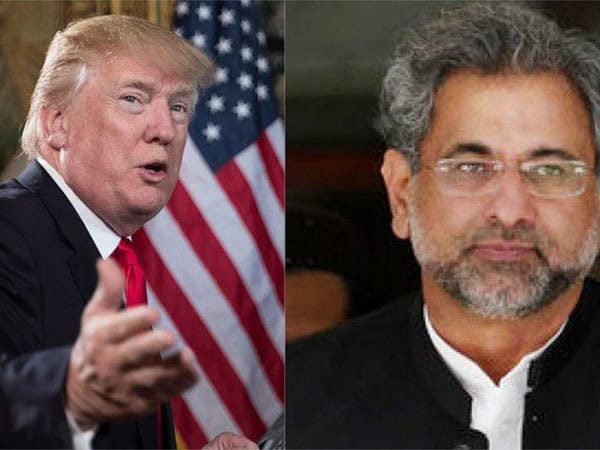Washington: President Donald Trump’s “hasty and unplanned” broadside against Pakistan via a tweet this month that the United States will only offer aid to the latter if it is seen to be acting firmly against terrorists, could result either in a foreign policy success, or may break the U.S.-Pakistan relationship beyond repair while reaping few actual benefits, says an expert on South Asia.
In an article written for and published in The Atlantic, C. Christine Fair, Provost’s Distinguished Associate Professor at Georgetown University’s Security Studies Program within the Edmund A. Walsh School of Foreign Service, says, “Well-placed sources involved with calculating the relevant funds have told me that this was not a planned policy and took the other agencies, not to mention the Pakistanis, by complete surprise.”
Though she warns that President Trump’s statement that the “United States has foolishly given Pakistan more than 33 billion dollars in aid over the last 15 years, and they have given us nothing but lies & deceit, thinking of our leaders as fools. They give safe haven to the terrorists we hunt in Afghanistan, with little help. No more,” could eventually provide Islamabad with a platform to make Washington pay dearly, she adds that Islamabad will tread cautiously, and might just not be successful in calling Washington’s bluff.
Fair says that pre-empting a Pakistani reprisal, if any, would entirely depend on the ability of his team to counter it.
Suggesting the potential areas where Pakistan can strike and affect US policy in South Asia and the region beyond, Professor Fair lists them, but also admits that going through with them is the realm of improbability:
. Pakistan could close off all ground routes used by America to resupply its troops in Afghanistan as it did in 2011-12. The need to find alternative routes by land and air, including through Central Asia then, ended up costing the Americans about USD 100 million per month more than the previous arrangement.
. Pakistan now says the alliance is over and that it is unwilling to allow a war to be fount from its soil to suit the Americans. Close the ground resupply routes apart, Islamabad might consider escalating the differences by closing down its air space
. Pakistan could get closer to China after declaring its relationship with the U.S. redundant. China’s Foreign Ministry has declared that it is “ready to promote and deepen” its cooperation with Pakistan. Fair, however, says that this might not happen as an economically weak Pakistan would not want to lose sovereign rights over territory if put in a position of not being able to pay up such as has happened with Sri Lanka and the Hambantota Port.
“China is not truly a substitute for the United States, and it will take time for China to assemble a suite of programs to replace U.S. aid,” she adds.
. Pakistan has cultivated a global fear that it is too dangerous to fail. This is why many Americans have been afraid to break ties with Pakistan and have never encouraged the International Monetary Fund and other multilateral organisations to cut off the country and let Pakistan wallow in its own mess.
. Pakistan believes it has effectively bribed the international community with the specter that any instability could result in terrorists getting their hands on Pakistani nuclear technology, fissile materials, or a weapon.
. It is also conceivable that Pakistan could use funds from a future IMF bailout to service its burgeoning Chinese debt.
. America does not have the same leverage that it had post 9/11 to coerce Pakistan to make way for an invasion of Taliban-dominant Afghanistan.
. Pakistan has cultivated Islamist militants as crucial tools of foreign policy.
She concludes by saying that “since the early months of the war on terror that began in October 2001, the United States has ultimately swerved when confronted with Pakistani brinkmanship. Pakistan can’t count on that this time.” (ANI)

